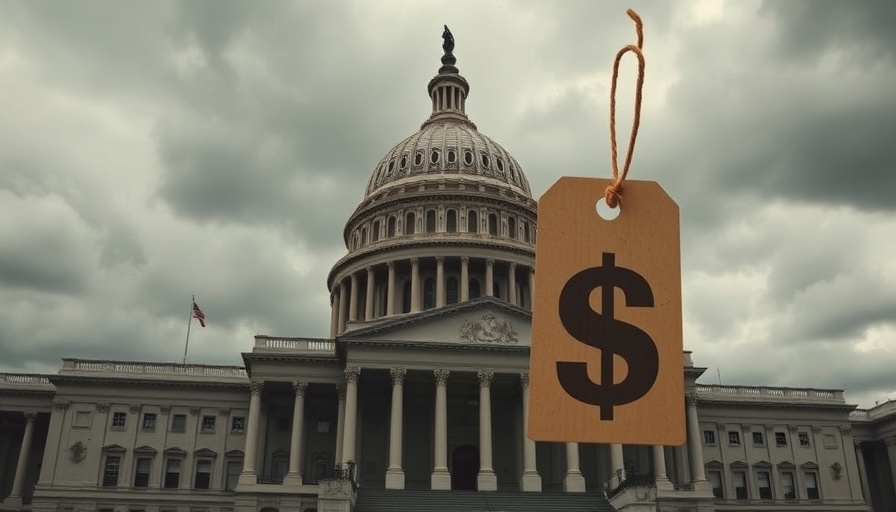
Understanding the Nasdaq's Recent Stumble amidst Tariff Turmoil
The Nasdaq Composite has recently found itself in the eye of a financial storm, taking a substantial hit due to escalating tariff disputes. Investors must not only grasp what this means for their portfolios but also reflect on the broader implications for market stability and individual financial plans. As trade uncertainties ripple through global markets, the lessons learned from these upheavals are critical for any serious investor.
The Rippling Effects of Tariffs on Investments
Tariffs have long been a contentious issue in U.S. trade policy, often leading to volatility in stock markets. The latest turmoil, triggered by aversive tariff adjustments, has revealed how finely the balance of economic relationships hangs. Investors need to consider the potential impact tariff changes can have on their asset allocation strategies. Particularly vulnerable are sectors reliant on international supply chains, where increased costs can erode profit margins and shareholder confidence.
Historical Context: Learning from the Past
Looking back, previous tariff wars have not only disrupted trade but have been precursors to wider economic downturns. For example, recalling the U.S.-China trade tensions in 2018, the markets faced significant upheaval as investors reacted to the uncertainty. By learning from historical patterns, contemporary investors can better prepare their portfolios for similar shocks — an essential strategy in wealth management.
Navigating Through Uncertainty: Investment Strategies for the Future
In times of financial uncertainty, a diversified portfolio becomes indispensable. A proactive approach to investment strategy includes reassessing risk management practices and adjusting allocations to defensive assets, such as bonds and real estate investments. These strategies are vital for wealth preservation and long-term financial stability, especially amidst the unpredictable nature of tariffs and political dynamics.
Identifying Opportunities Amidst Disruption
While market downturns often prompt fear, they can also unveil lucrative opportunities. Investor vigilance in seeking out undervalued stocks or sectors likely to benefit from shifting economic policies can lead to significant returns. Exploring alternative investments, such as mutual funds focusing on dividends or emerging markets, also offers ways to hedge against inflation and tariff repercussions.
Counterarguments: The Case for Optimism
Despite the dire situation, some analysts argue that downturns may be overblown and present a natural correction in inflationary pressure. The perspective here offers a counterbalance to prevailing investor pessimism, urging a more optimistic view on potential recovery. This viewpoint is particularly relevant as regulatory bodies often step in to stabilize markets and bolster investor confidence.
Practical Insights: Aligning Investment with Financial Goals
Investors should align their financial planning strategies — including retirement planning, tax optimization, and holistic wealth advising — with current market dynamics. By consulting with financial advisors who specialize in navigating volatile markets, individuals can better position themselves to withstand economic shocks and achieve long-term financial independence.
Conclusion: Take Action Against Volatility
In light of the recent tariff turmoil affecting the Nasdaq Composite, it is evident that investors face both risks and opportunities. By embracing strategic insights and diversifying assets, one can mitigate the pitfalls of market fluctuations. Don't let uncertainty dictate your financial journey; consult with a financial advisor today to solidify your investment strategy and ensure you're on track for success.
 Add Row
Add Row  Add
Add 




 Add Row
Add Row  Add
Add 

Write A Comment